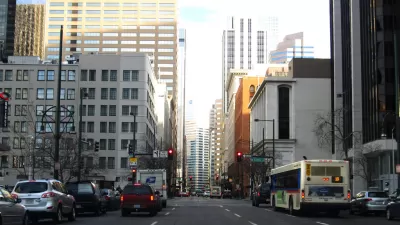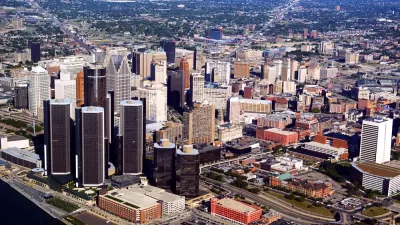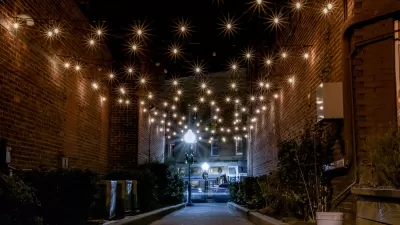There's a lot to like about the resurgence of downtown cores. But as is the case elsewhere, Denver's core has only attracted a small subset of the wider city's population. Most people still call the suburbs home.

According to Vincent Carroll, we shouldn't greet the resurgence of downtown Denver with unmitigated celebration. Drawing on the Downtown Denver Partnership's 2018 State of Downtown Denver report, he points out that "by any calculation, downtown Denver's household statistics are a startling outlier — and a reminder that the glib urbanist cliches that have become so commonplace are an impediment to clear thinking about the nature of modern cities."
Since the later decades of the 20th century, Carroll writes, changes in downtown have been a positive for the area. "I'm a fan of much of the change. But that transformation shouldn't be oversold as a general model. As a place to live, it appeals to and is affordable for only a segment of the population. Families and especially families with children look elsewhere."
While many urbanists tend to "sneer at sprawl," Carroll advises greater consideration for the low-density, far-flung neighborhoods where most of the population lives. He cites Steve Hogan, the late mayor of Aurora, Colorado. "His legacy, which includes Aurora Highlands south of DIA with potentially 60,000 future residents, will do far more to meet housing demand than Denver's ramped-up campaign to subsidize affordable units such as the micro-apartments slated for the old First Avenue Hotel on Broadway."
FULL STORY: A reality check on downtown Denver’s renaissance

Maui's Vacation Rental Debate Turns Ugly
Verbal attacks, misinformation campaigns and fistfights plague a high-stakes debate to convert thousands of vacation rentals into long-term housing.

Planetizen Federal Action Tracker
A weekly monitor of how Trump’s orders and actions are impacting planners and planning in America.

In Urban Planning, AI Prompting Could be the New Design Thinking
Creativity has long been key to great urban design. What if we see AI as our new creative partner?

Massachusetts Budget Helps Close MBTA Budget Gap
The budget signed by Gov. Maura Healey includes $470 million in MBTA funding for the next fiscal year.

Milwaukee Launches Vision Zero Plan
Seven years after the city signed its Complete Streets Policy, the city is doubling down on its efforts to eliminate traffic deaths.

Portland Raises Parking Fees to Pay for Street Maintenance
The city is struggling to bridge a massive budget gap at the Bureau of Transportation, which largely depleted its reserves during the Civd-19 pandemic.
Urban Design for Planners 1: Software Tools
This six-course series explores essential urban design concepts using open source software and equips planners with the tools they need to participate fully in the urban design process.
Planning for Universal Design
Learn the tools for implementing Universal Design in planning regulations.
Gallatin County Department of Planning & Community Development
Heyer Gruel & Associates PA
JM Goldson LLC
City of Camden Redevelopment Agency
City of Astoria
Transportation Research & Education Center (TREC) at Portland State University
Jefferson Parish Government
Camden Redevelopment Agency
City of Claremont





























